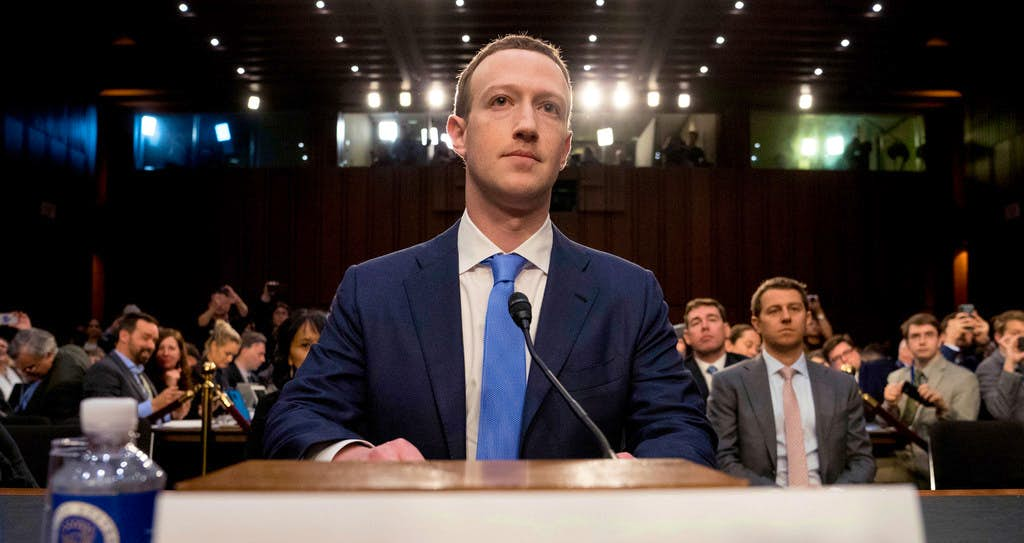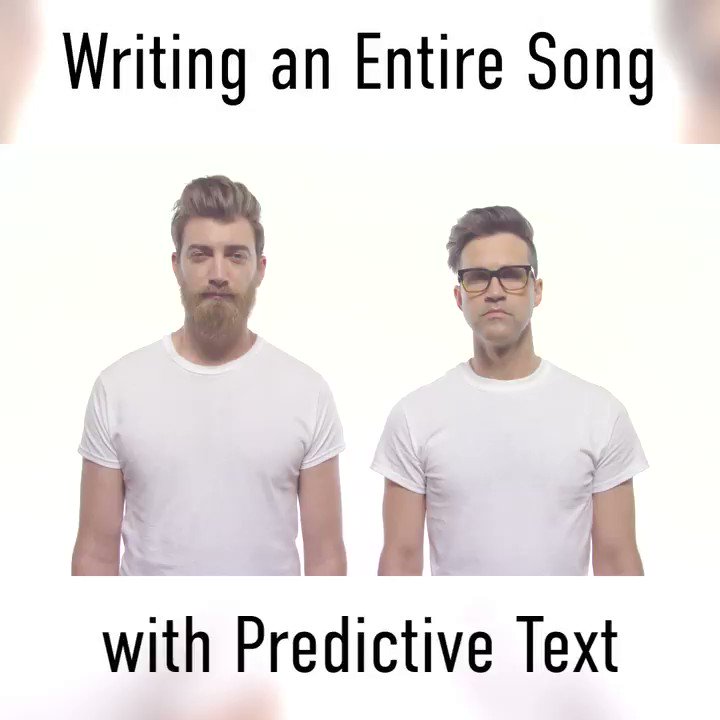 |
| Mr. Zuckerberg, CEO of Facebook, at the congressional hearing in Washington DC |
Watched the Zuckerberg hearing yesterday and today, and boy howdy was it interesting. As someone who is personally invested in the media industry flourishing, I tried to be as objective as I could, and here were some of my thoughts about it:
1) It's all a definition game. Seriously. Everything from "hate speech" to "ownership" to "media" to "data" - not a single person in the conversation uses these terms in the same way with the same understanding of what they mean. Also, although there is a general agreement of "censor but don't censor too much", "legislate for safety, but not too much", and that the "details matter", no one seems to want to get into specifics or take responsibility for defining these tricky boundaries.
2) It's all PR. Both from Mr. Zuckerberg and the senators/congressmen/women. The representatives want to look good at professing their constituent's outrage and that they're "doing something about it". Mr. Zuckerberg and Facebook want to show that they are still a trustworthy company that will make a change.
3) Everyone needs to shut up. Similar to point 2, the politicians asking Mr. Zuckerberg questions need to let him answer and stop interrupting him. It might be fun to yell at him for hours on end, but one of the worst things is to see congresspeople and senators fail to understand the nuances that Mr. Zuckerberg tries to explain. Granted, nuance isn't fun or headline news or a comfort when a security breech like this has happened, But. It. Is. So. Important. Without it, how do does DC expect to make informed policy decisions going forward? One example of this is their inability to understand how data is still able to be "scraped" despite it being wiped from Facebook's servers. I'm not a computer science whiz, but as a basic consumer of social media (and someone who works in media), this seems pretty straight forward to me. A third party app developer is a separate entity with their own servers, storage, etc. As a result, Mr. Zuckerberg could wipe information from all of Facebook's servers, but he has no control over outside/third party companies who have it stored.
4) DC versus DC and advancing political party goals. Also similar to point 2, this trial seems to be all about advancing party policies/perspectives whether it's trying to get Mr. Zuckerberg to promise to back more legislation and regulation for "tech companies" or for him to admit to censoring Republican/conservative messages. Using this particular high profile media case (because media enjoys hyping up cases about media, just like how Hollywood enjoys giving out awards to films about Hollywood) to advance these positions just seems like a shallow attempt to use the media hype to their advantage for political gain.
5) Facebook versus Silicon Valley. Mr. Zuckerberg is the face of Silicon Valley to DC, but that doesn't seem fair as no one is outraged about the sheer amounts of data that other companies like Google, Amazon, and Apple also harvest and use for the same types of targeted advertising. Not to mention that they are also vulnerable to outside hacks, breeches, etc. (There's a great article on Google's pervasive reach
here).
6) DC versus Silicon Valley. Similar to point 5, there's a huge disconnect between the two symbolic locations. The amount that DC doesn't understand about how the Internet, tech companies, social media, apps/app developers, etc. work is startling. On the flip side, Silicon Valley clearly doesn't understand the culture and process of politics in DC.
7) Too many topics. Similar to point 6, it seems like DC wants Mr. Zuckerberg to atone for all of Silicon Valley's sins (real or imagined) ranging from terrorist groups utilizing social media, a lack of diversity in the tech/media industry, a lack of action/transparency about stolen data by third party app developers, the rise of cyber-bullying, the promotion of self-harm/hate speech, potential censorship of free speech, lack of clear (ie: no one wants to read/can understand) user term agreements, fears about A.I, selling illegal substances on social media, the list goes on and on. But all of these have nuanced and complicated answers, and conflating all of these questions into a firehose of a hearing isn't helpful. There was only a handful of politicians who seemed to have clear, focused, and related inquiries in the hours of questioning. In particular, Senator Todd Young, who seemed to actually understand that The Internet is not one homogeneous sphere that a single person can own/manipulate. And therefore his request was, I thought fairly reasonable:
Young calls attention to the issue of different expectations of privacy on Internet access services and on applications like Facebook. To users, Young points out, it's all the Internet, and they don't really make a distinction.
Zuckerberg says Internet access providers — "the pipes" — should not be able to see any of the data. "When data is going over the Verizon network, I think that should be as encrypted as possible so Verizon is not able to look at it," Zuckerberg says. "For a service like Facebook or Instagram, where people want to share that, people want to access that from lots of different places," so it needs to be stored centrally, Zuckerberg says. That means expectations of what Facebook would "have knowledge of" will be different, he says. (x)
8) Everyone wants a timeline. We get it. We all want to know WHEN will change happen, WHAT changes will happen, and WHO will be involved with said changes. But I don't know if a congressional hearing is fair to ask Mr. Zuckerberg for one, as he needs time to consult with his internal team/company, work out all the nuanced details, etc. I agree that demanding for one is good, but asking him this again and again and again won't get Congress a copy any sooner.
9) Be savvy. This is not the fun or sexy answer, but one of the refrains again and again was "do you think the average Facebook user knows [fill in the blank]", and I think this is where Mr. Zuckerberg has some ground. His company has done a fairly decent job over the past few years at getting people to look at privacy policies with fun icons and easy to understand words. In fact, you can literally go see what Facebook thinks your political leanings and interests are that advertisers can target if you just go to the account settings/privacy tab. You can also easily delete this tracking and opt-out of settings. I also, despite being a Facebook user for almost a decade, never linked my phone number or text messages with Facebook, despite installing the Facebook and Facebook Messenger app. Be smart. I agree with Mr. Zuckerberg that there has to be a line where consumers need to have a role in accountability here. It's only when things like murky user agreements and lack of immediate, clear Facebook transparency is when the company and creator can be held accountable (see:
this article). Congress, however, doesn't seem to recognize where this line is.
10) How much influence does Facebook actually have? The underlying agreement is that Facebook's pervasive, ubiquitous reach is significantly influential to the point of manipulative (as in manipulating people to the point of significantly influencing the 2016 US Presidential Election as well as other foreign elections). But is this true? If Facebook truly engaged in censorship of media to only showing their users left-leaning news stories then that might skew a perception of what's happening in the world. But conservative political gains have been sweeping both America and Europe, even if this is true. Essentially, both sides seem to believe that Facebook has unfair influence for their political party opposition.
This final point, I think brings me to what I saw the crux of the matter to be: Government versus Media: Trust, Responsibility, Power.
I think it's always been true that politics and media have had a complicated relationship in the sense that they influence each other as both are based on ideas and communication of said ideas. Broadly speaking, if media is assumed to be something larger than social networks like Facebook, this goes back centuries. For instance, think of the rise of the printing press and pamphlets for attributing to higher literacy rates, sparking things like the Protestant Reformation and the American Revolution as ideas were able to be shared and communicated more rapidly and to more people.
But recently, the public's ability to trust what they hear from modern media outlets (whether social media networks like Facebook or media outlets like the Cable News Network [CNN]), has sharply been called into question. Obviously, the validity of journalism has been subject to scrutiny for years, but with the rise of the term "fake news" and President Trump's vocal fight against the media industry, it's transcended into an all out war. Similarly, the trust of public officials has been in question for decades (in the modern era, at least since Watergate in the 1970s). But the cynicism and distrust of the American government (and politics in general) has reached new heights since the rise of faster and faster means of communication like Twitter hashtag movements and the ability to record incidents any time any where with vigilante reporting from iPhone witnesses. The public's cry for transparency in Washington DC and in the media industry has been sounded.
Similarly, the question of if government officials and media content creators are responsible to the public was, I believe, brought up again and again (at least in the subtext of the discussion). The push of public officials for legislation/penalty fees to protect the public seems to indicate a belief that they are responsible for the concerns of their constituents, and that the media industry (even though Mr. Zuckerberg continued to insist on his company as a "tech company", I will include it in the extremely broad definition of media), is also responsible to the public to some degree in regards to their safety/security.
Finally, that last point, regarding power, is the biggest thing above all that the government and media fight with each other over. How much does the media truly influence the decisions we, the discerning public, make? How much control does the government exert over our daily lives? Are we being manipulated and censored to only see information that the organizations, corporations, legislatures what us to see? The list goes on and on, and we, the consumer/public need to seriously think about how much agency we have over our lives and how much agency others have over it in terms of influencing the types of decisions we make every day and the way we perceive the world. Obviously, the answers to these types of questions are never easy. But the it seems to me that both the government and media refuse to answer these questions, so it's up to us to step up to the plate.
(and I'm more concerned about the data I share with my Google over lords anyway)
























